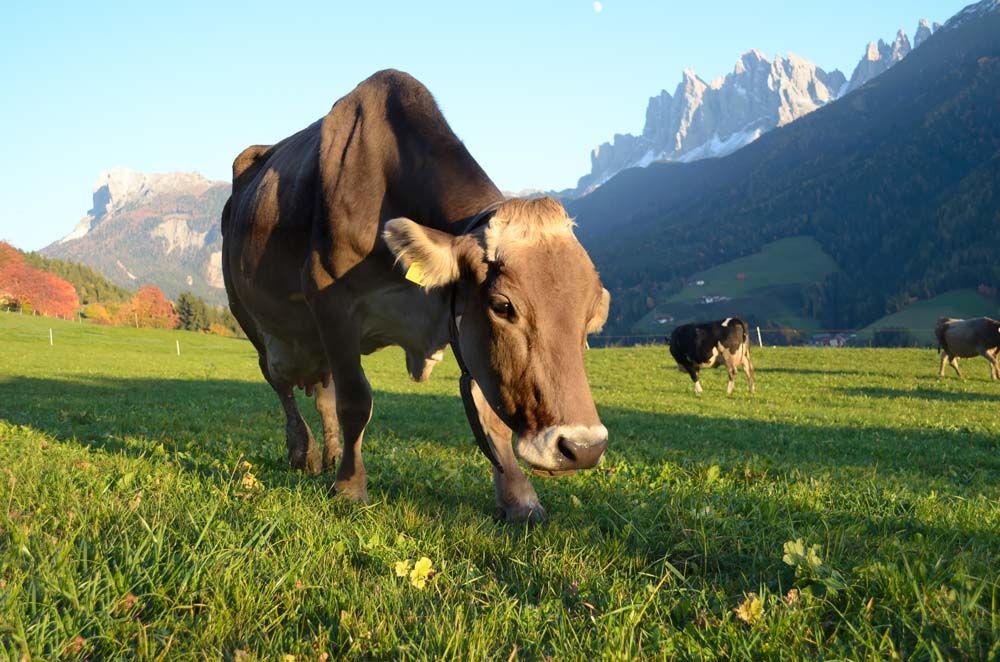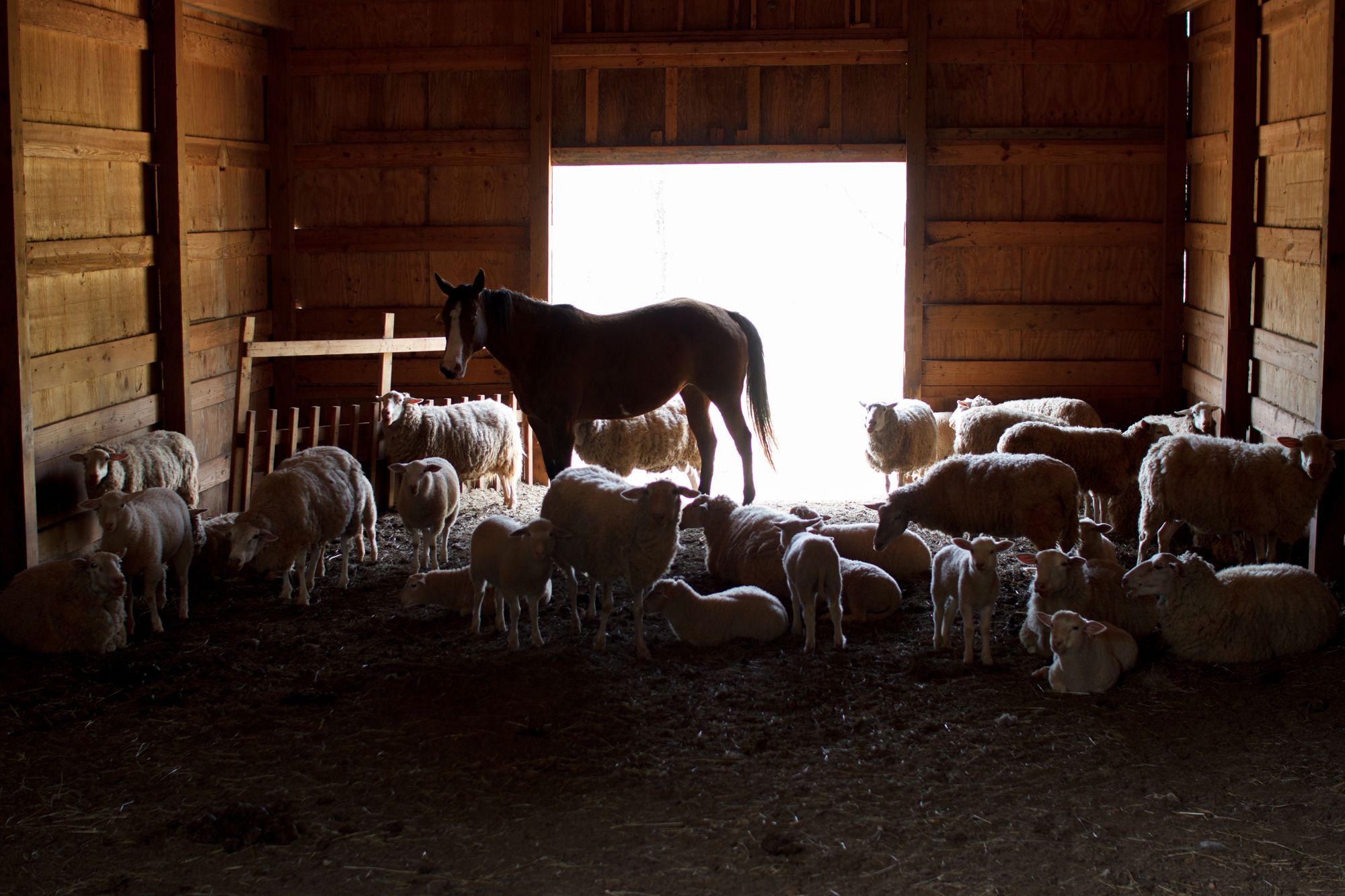The Right Dog For Your Homestead
Time for a Puppy


A farm dog can be a pest control consultant, security dog or rat catcher, and it’s safe to say that agriculture wouldn’t exist without dogs. A lot of planning and careful research should begin before bringing home a new pup. So, how do you know what breed or mutt is the perfect dog for your family and homestead?
Selecting the right dog breed is crucial for those embracing a country lifestyle. The vast landscapes, diverse weather conditions and various farming activities present unique opportunities (and challenges) for dog owners.
Working Breeds or Ratters
Some breeds excel both indoors and outdoors, making them ideal for families who want the flexibility of having their dogs inside the house or out on the farm. Meanwhile, certain breeds, despite being traditionally suited for outdoor life, can adapt to indoor living and even become lap dogs, providing companionship and snuggling on the couch.
Choosing the right dog breed involves careful consideration of the roles dogs play on a farm. By understanding these factors, you can select a breed that not only complements your rural lifestyle but also brings joy and companionship to your home. Some dogs love the outdoors and are bred to work.
Livestock Guardian Dogs
In rural settings, Livestock Guardian Dogs (LGDs) play a pivotal role in protecting animals from predators. Breeds like the Great Pyrenees, Anatolian shepherd and Maremma sheepdog are renowned for their dedication and protective instincts. Not only do they safeguard livestock, but many LGDs also make excellent family guardians, bonding with both people and livestock. The Great Pyrenees breed is known as a wonderful family companion.
Herding Dogs
Herding dogs, such as border collies, Australian shepherds and corgis, are indispensable for managing livestock. Their intelligence and agility make them experts at directing and controlling animal movements. These breeds thrive on tasks and require ample space and activities to channel their energy productively.
Cattle Dogs
For those specifically involved in cattle farming, dogs like the Australian cattle dog, kelpies and hanging tree dogs are indispensable. Known for their stamina and work ethic, these breeds can handle large herds and thrive in challenging environments, making them a vital asset on any farm.
Catching Rats and Sitting in Laps
Rat terriers, Jack Russell terriers and doxies are known to be vermin hunters both outside in the barn and inside the house. These breeds keep an eye out for moles and dig on command. They can step up to be farm dogs, but enjoy a lap to curl up in after digging a hole for your fruit tree.
Key Considerations When Selecting a Puppy
Adding a new puppy is not for the faint of heart. All puppies need to be set up for success and a committed owner who doesn’t mind sharp puppy teeth.
Understanding Size, Space and Environment
Different breeds adapt variably to sprawling rural environments and smaller homestead settings. While some dogs enjoy the freedom and space of the countryside, others might be more suited to the comforts of a smaller fenced yard. Also, consider how a puppy’s size may impact your living space. Whether you have 10 acres or two makes a difference with some breeds. For example, hounds need a secure fence they can’t escape from!
Understanding how your chosen breed will acclimate to your environment is essential to ensuring their well-being and happiness. When choosing a breed, also consider the climate of your area. Some breeds are better suited for colder climates, with thicker coats providing warmth, while others thrive in warmer conditions. Ensuring your breed choice aligns with local weather can prevent health issues and discomfort.
Active Versus Laid-back Breeds
Matching a dog's energy level with your lifestyle is crucial. Active breeds require more exercise and engagement, making them suitable for homes with large outdoor spaces, while more laid-back breeds can thrive with less activity. The basset hound’s temperament is much different than a red heeler. Yet all puppies benefit from regular walks and supervision while outdoors. This balance is key to maintaining a healthy, happy dog and a stress-free owner.
Reputable Breeders and Adoption
Spend time researching breeders and their practices. Breeders should have a policy of taking back a puppy if you ever find yourself in a situation where you can no longer keep them. They should be happy to let you meet the mom and dad and see them with the puppies. Plus, they should allow multiple visits so the puppy can become familiar with you.
Puppies are often available to adopt from shelters and these dogs are often mixed breeds. Many breed rescue groups have puppies available.
Preparing Your Home
Puppy-proofing your home inside and out before your puppy arrives also includes putting away anything precious since puppies explore with their mouth.
- Put down rugs and non-slip covering on any floors that appear slick.
- Remove rugs that you don’t want peed on or chewed.
- Block anything off that could pose a risk to your pup.
- Block off any unsafe areas, invest in baby gates for stairs and close off access to rooms.
- Remove anything small your pup can choke on.
Essential Supplies
Welcoming a new puppy into your home is an exciting adventure and being prepared with the right essentials can make the transition smooth and joyful. From cozy beds and blankets for keeping your pup snug to reliable cleaning products for those inevitable messes, having the basics on hand is critical. Stock up on poop bags and pee pads for easy cleanup and provide your pup with long-lasting, food-based chews to keep them entertained.
Ensure your puppy’s safety with a name tag and a sturdy collar or harness, and have a variety of food and water bowls ready to match their growing appetite. With a selection of puppy food (do your research and ask the breeder what the pup has been eating), and both long and short leashes for walks and indoor management, you'll be set to start your wonderful journey of puppy parenting.
Essentials for Puppies
- Cozy beds and blankets.
- Good cleaning products.
- Poop bags and pee pads.
- Long-lasting food-based chews.
- Name tag and collar or harness.
- Food and water bowls.
- Puppy food (a few different types).
- Long leashes and one short one for inside management.
Tags:Country Critters

Acreage Life is part of the Catalyst Communications Network publication family.
















